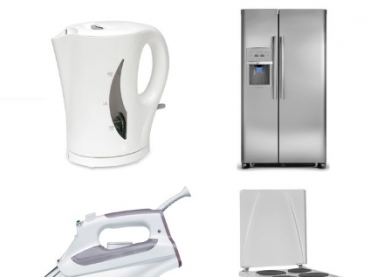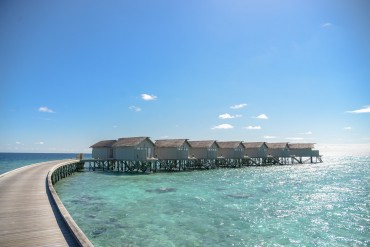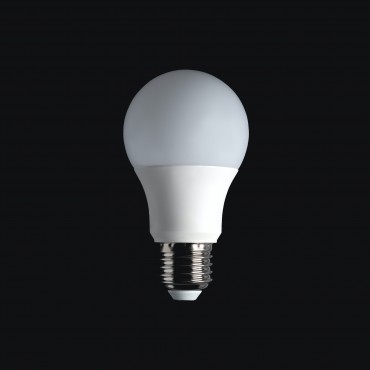 24 hour power supply! For some people this may sound to be just an election agenda, while for many others, having 24 hours power supply is a reality. No matter whether you stay in some metro city like Delhi or Mumbai, where there is hardly any power cuts, saving power has become a big time responsibility for each one of us, especially with the setting of summer season. With every house and office now switching on their coolers and air-conditioners, more power will be used to beat the heat. The result – Power shortage crisis and long hour power cuts during peak times such as 10 am to 8 pm.
24 hour power supply! For some people this may sound to be just an election agenda, while for many others, having 24 hours power supply is a reality. No matter whether you stay in some metro city like Delhi or Mumbai, where there is hardly any power cuts, saving power has become a big time responsibility for each one of us, especially with the setting of summer season. With every house and office now switching on their coolers and air-conditioners, more power will be used to beat the heat. The result – Power shortage crisis and long hour power cuts during peak times such as 10 am to 8 pm.
However, such power cuts can be overcome if we take up the responsibility of saving power. Following just a few basic steps and we can save energy, enough to allow our city, state and country have 24 hour power supply. So, are you willing to take this responsibility? If yes, here are the tips you should follow.
- Using certain electrical appliances later in the day
Use appliances such as washing machines, irons, geysers, water pumps, etc. later in the day when most offices are closed and the power usage has decreased.
- Use air-conditioners at 24º C
Air-conditioners are one of the biggest reasons leading to power crisis. When you switch on an AC OR change its temperature by even one degree, a huge load is caused to the power system. Instead of setting your ACs at 18 º C or 20 º C, keep them at a mild 24 º C. you will stay absolutely comfortable.
- Switch off the plug points
Switching off your television or AC from the remote doesn’t stop the power supply to the electrical device. Instead, you appliance is now on a Stand-by mode. These little wastage of power accounts to a huge 5% of the total city power consumption. So, instead of just switching off your TV, washing machines, ACs, etc from the remote, make sure you switch off the main power plug points.
-
Switch off the lights and fans when not in use. You can replace the bulbs with tube lights or CFL lights of required watts.
-
Use natural lights by using regulators and electronic chokes.
-
In malls, hotels and multiplexes, optimize the use of lights.
-
Avoid lights in the day. Use daylight as much as possible by having loose-weave curtains that allow more light into your rooms. Use lighter colors on the walls as they reflect light, making the room look brighter.
-
Use lights in only those areas where you need them.
-
CFL lights are 4 time more efficient than other bulbs.
-
Instead of conventional chokes made form copper, use the electronic chokes.
Electric Iron
-
Use electric irons with automatic cut offs.
-
Use needed regulators.
-
Avoid using too much water while ironing clothes
-
Never iron wet clothes.
Fans
-
For ceiling fans, use electric regulators.
-
Install the exhaust fans higher than the level of ceiling fans in a room.
Refrigerator
-
Avoid opening the door of the refrigerator frequently.
-
Make sure the thermostat is set at a medium cooling position.
-
Keep things at a distance from the wall so that air can circulate throughout the refrigerator.
-
Don’t overload your refrigerator.
-
Remember to defrost your refrigerator frequently.
-
Frost buildup uses more energy for monitoring the temperature.
-
Don’t keep the freezer very cold.
-
Keep the refrigerator doors closed tightly.
-
Always cover the food stored in the refrigerator as they release moisture, making the compressor work even harder.
-
Make use of the smaller cabinets for storing regularly used items.
-
Don’t store warm thins in the refrigerator.
Washing Machine
-
Use only after 10pm or before 10 am in the morning.
-
Use washing machine with full load.
-
Use shortest cycle time.
-
Use only optimal quantity of water.
-
Use timers to save energy.
-
Use correct amount of detergent.
-
Use cold water to rinse the clothes.
-
Use hot water for very dirty clothes.
-
Use natural drying of clothes instead of electric dryers.
Geyser
-
Use geyser preferably before 10 am.
-
Keep it switched off when not in use.
-
Reduce the thermostat to 50º C.
-
If possible, use a solar power heater instead of a electric water heaters.
Mixer
-
Avoid using food processors for dry grinding as they are more time consuming.
Microwave/ovens
-
Use them as much as possible. They consume 50% less energy as compared to the conventional gas or electric stoves.
-
Avoid baking large items.
-
Preheat only when required, for instance for breads or pastries.
-
Don’t open the oven frequently to check the food. This may cause a temperature drop of at least 25º.
Electric Stove
-
Turn off the stove a few minutes before the cooking time.
-
Always use flat bottomed vessels for cooking.
Gas Stove
-
Use medium flame burners to cook food. This will save LPG.
-
A blue flame indicates efficient functioning of your gas stove.
-
A yellow flame indicates that your stove needs servicing.
-
Cook in pressure cookers.
-
Use lids to cover the cooking pans.
-
Let food items come to normal room temperature before you start cooking. This will help cook food faster and also save gas.
Air Conditioning
-
Keep doors and windows properly sealed for better cooling.
-
Maintain temperature at 24º C for a comfortable atmosphere.
-
Clean the AC monthly.
-
Use tinted glasses on the windows.
-
Have automatic cut off options in your AC.
-
Keep regulators at a ‘low cool’ position.
-
Use the ceiling fan to circulate the air appropriately in the room.
-
For better circulation, keep some space between the AC and the wall.
-
Have a roof garden to decrease the load on your AC.
-
During the summer, set the thermostat at a higher position. Lesser the difference in the temperatures, more efficient will be the cooling and lesser the energy consumption.
-
Avoid placing lamps or TV sets anywhere near the thermostat as it easily senses heat and burns more energy for constant cooing.
-
Place shrubs and plant trees near the AC units. Make sure you do not block the air flow. This will help consume 10% less energy than earlier.


























































Comments